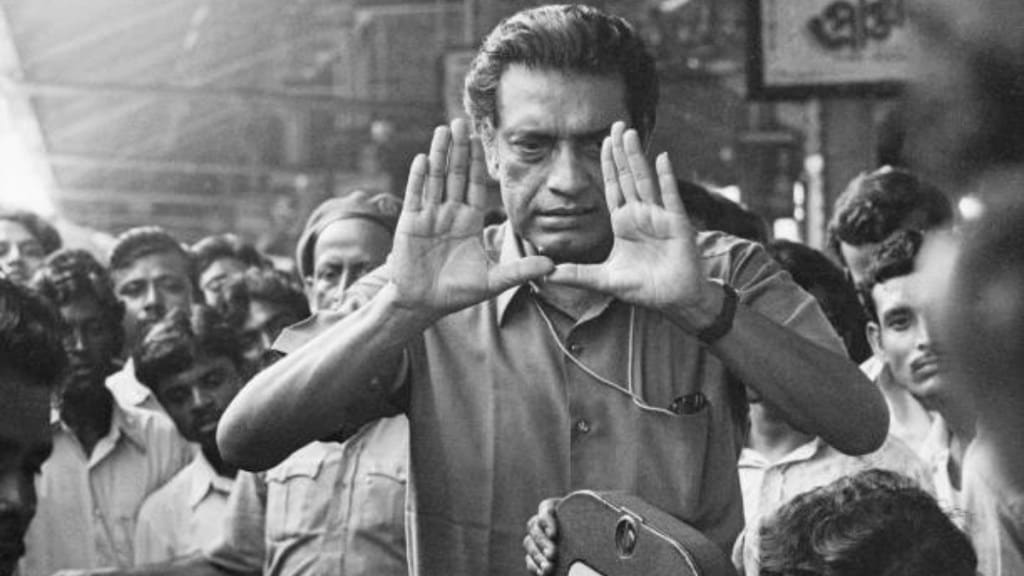By Faizal Khan
Come October 3, film buffs in Brazil will be watching Indian films sitting in the comfort of their homes. In a first-ever major OTT release of Indian movies in South America, Brazil’s biggest VOD (video on demand) platform is launching six Satyajit Ray films, all digitally restored, for a modern-day audience.
Two years after the celebration of the Satyajit Ray birth centenary, countries that haven’t been traditional markets for the neorealism master, like Brazil, are embracing his works with infectious enthusiasm. This year has already seen the VOD launch of his films in Poland, Greece and even Indonesia and South Korea.
The list of Ray films to be launched by Imovision, a film distribution platform in Brazil, has some of his most works like Charulata, Mahanagar and Nayak—all made between 1963 and 1966. Mahapurush, Kapurush and Jai Baba Felunath complete the Brazil VOD package.
“Satyajit Ray is a big name in countries like the United States, United Kingdom and France,” said Varsha Bansal, head of international sales at Kolkata-based RDB Entertainments, which holds the rights of all the six Ray films due for release in Brazil. “It is encouraging that his films are today released in countries where it was not possible to talk about Ray earlier,” she added.
Clearly, more than half-a-century after they were made, Satyajit Ray movies still rule India’s soft power dynamics, evident by the fact that the Indian films currently scorching the global theatrical and festival circuit are not new releases from Bollywood or Tollywood, but old Ray movies, all restored from near ruins.
The Brazil OTT release will be followed by a theatrical release in the Netherlands in November. A similar release is scheduled in Japan next spring. “Other countries where Ray films were theatrically released in the last one year are Germany, Switzerland, Denmark, Slovenia, Italy, Spain, Iceland and the UAE,” said Bansal, the granddaughter of RD Bansal, a prominent producer of Ray films in Kolkata in the Sixties.
Nearly all new theatrical releases of Ray films abroad have taken the familiar route of a film festival screening first, a typical market strategy to gain confidence of a fresh audience. The Poland release was preceded by the screening of Ray films at the New Horizons Film Festival in Wroclaw in July last year and in Greece it was the Thessaloniki International Film Festival in October last year.
“We are honoured to include the early works of Satyajit Ray in our VOD catalogue. The titles are an important part of cinema legacy, yet astonishingly contemporary. These are films that can’t be forgotten and are actually meant to be rediscovered again and again,” said Dorota Witkowska of Polish distributor New Horizons VOD.
The São Paulo International Film Festival, the oldest film festival in Brazil, will have a retrospective of Ray films during October 17-30, coinciding with the VOD release by Imovision. “The festival poster this year is based on a storyboard of Pather Panchali drawn by Ray himself,” beamed Bansal, a Master’s in filmmaking from Sheffield Hallam University in the UK.
The past year has also seen Ray film screenings at festivals in Albania, Georgia, Estonia, Costa Rica, Saudi Arabia, Hong Kong, Canada and Hungary. The Cairo International Film Festival, the oldest in the Arab world, will screen Charulata, Nayak and Mahanagar in November this year.
While Ray produced most of his early films on meagre budgets, RD Bansal, who then owned six cinemas in Kolkata, backed the director for six of his next projects and even convinced him to write a script with a superstar in the lead. Ray agreed, leading to Nayak, starring Uttam Kumar and Sharmila Tagore.
Besides the six Ray films produced by RD Bansal, RDB Entertainments represents eight more restored Ray films, including Aparajito and Jalsaghar produced by Aurora Film Corporation and six others, among them Devi, Paras Pathar and Apur Sansar, produced by Chayabani Pictures.
After RD Bansal’s passing in 2010, his company decided to restore the Ray films a year later in a massive process undertaken at the Pixion Studios in Mumbai.
The negatives of the six Ray movies produced by RDB Entertainments are currently kept in safe custody of the Austrian Film Archive, Vienna. Bansal now wants all her company’s six restored Ray films, which are in 2K resolution, to be made available to the audience in 4K. Said Bansal, “We are talking to L’Immagine Ritrovata (film restoration lab) in Bologna, Italy. If they work on restoring the films to 4K, we will shift the negatives to Italy.”
Faizal Khan is a freelancer.

